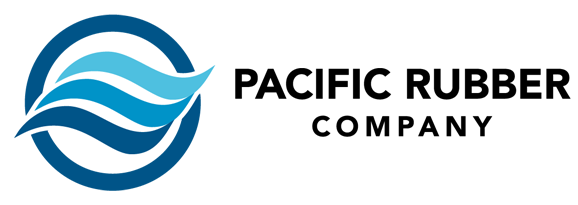AMS Specifications
AMS specifications, standing for “Aerospace Material Specifications,” play a crucial role in ensuring the quality, consistency, and reliability of materials used in various industries, including the rubber industry. These specifications are established by the Society of Automotive Engineers (SAE) to define the requirements for materials that are used in aerospace and other demanding applications. In the rubber industry, AMS specifications are designed to set standards for rubber compounds, ensuring they meet the stringent requirements of aerospace and other critical applications.
AMS specifications in the rubber industry cover a wide range of attributes, including physical properties, chemical composition, thermal stability, and resistance to environmental factors. These specifications guide rubber manufacturers in developing compounds that exhibit specific performance characteristics, such as high temperature resistance, low compression set, excellent tensile strength, and resistance to fluids and chemicals. By adhering to these specifications, manufacturers can produce rubber products that perform reliably in extreme conditions, ensuring safety and longevity in critical applications.
One of the key advantages of using AMS specifications in the rubber industry is the consistency and interchangeability they offer. Engineers and designers can confidently select rubber materials based on AMS specifications, knowing that they will consistently meet the desired performance standards. This uniformity simplifies the manufacturing process and allows for easier substitution of materials, which is particularly important in industries where precision and reliability are paramount, such as aerospace.
Moreover, AMS specifications promote innovation and continuous improvement within the rubber industry. As new technologies and materials emerge, the specifications are updated to reflect the latest advancements. This drives research and development efforts to create rubber compounds that push the boundaries of performance. The rigorous testing and validation processes associated with AMS specifications help ensure that these innovations are thoroughly evaluated before being adopted for critical applications.
AMS specifications serve as a cornerstone in the rubber industry, guiding the development and production of rubber materials that meet the high demands of aerospace and other industries. These specifications provide a standardized framework for defining material properties and performance characteristics, fostering consistency, reliability, and interchangeability. By adhering to AMS specifications, manufacturers can create rubber products that excel in extreme conditions while also fostering innovation and pushing the industry forward through continuous improvement.
- Silicone
AMS 3301, 40 Shore
AMS 3302, 50 Shore
AMS 3303, 60 Shore
AMS 3304, 70 Shore
AMS 3305, 80 Shore
AMS 3310, 60 Shore
AMS 3325, 55 Shore
AMS 3334, 40 Shore
AMS 3335, 50 Shore
AMS 3336, 60 Shore
AMS 3337, 70 Shore
AMS 3338, 80 Shore
AMS 3344, 40 Shore
AMS 3345, 50 Shore
AMS 3346, 60 Shore
- Nitrile
AMS 3200, 60 Shore
AMS 3202, 60 Shore
AMS 3205, 50 Shore
AMS 3212, 60 Shore
AMS 3213, 80 Shore
AMS 3214, 45 Shore
AMS 3215, 70 Shore
AMS 3220, 60 Shore
AMS 3226, 50 Shore
AMS 3227, 60 Shore
AMS 7271, 65 Shore
- EDPM
AMS 3260, 50 Shore
- Neoprene
AMS 3204, 30 Shore
AMS 3207, 30 Shore
AMS 3208, 50 Shore
AMS 3209, 70 Shore
AMS 3240, 40 Shore
AMS 3241, 60 Shore
- FKM
AMS 7276, 75 Shore
AMS 7277, 75 Shore
AMS 7277, 75 Shore
AMS 7278, 75 Shore
AMS 7279, 90 Shore
AMS 7280, 75 Shore
We are positioned to provide affordable solutions for long or short runs thanks to our flexible molding production capabilities and custom rubber compositions. To fully comprehend their difficulties and offer them specialized solutions, we collaborate closely with our customers. To kickstart your production, we also provide help with tool design.
Common Name:
Molded Slabs (FINISH)
Generally Resistant To:
Moderate Chemicals and Acids, Ozone, Oils, Fats, Greases, and Solvents
ASTM D 2000 / SAE J200 Classification:
BC, BE
Chemical Name:
Polychloroprene
Generally Attacked By:
Esters, Ketones, Chloronated, Aromatic and Nitro Hydrocarbons
MIL-R-3065 / SAE J-14 / MIL-STD-417 Classification:
SC
ASTM D-1418 Designation:
CR
Elongation:
100% to 800%
Hardness Range (Durometer Shore A):
20 to 95
Compression Set:
Good
Abrasion Resistance:
Very Good to Excellent
Impact Resistance:
Good to Excellent
Rebound Rating:
Fair to Very Good
Tear Resistance:
Good
Flame Resistance:
Very Good to Excellent
Flex Cracking Resistance:
Good to Very Good
Minimum Service Temperature:
-30°F to -70°F
Maximum Service Temperature:
+220°F to +280°F
Recommended Shelf Life:
5 to 10 years
Ozone Resistance:
Good
Steam Resistance:
Poor to Good
Weather Resistance:
Poor to Good
Oxidization Resistance:
Good
Gas Permeability:
Fair to Good
Sunlight Resistance:
Good to Very Good
Water Resistance:
Excellent
Radiation Resistance:
Good, 1 x 105 Ga Gy
Poor, 9 x 105 Ga Gy
Acetone:
Minor to Moderate Effect
Amonium Hydroxide:
Recommended: Little to Minor Effect
Animal Fats:
Minor to Moderate Effect
Carbon Dioxide:
Minor to Moderate Effect
Chlorine:
DRY: Moderate to Severe Effect
WET: NOT RECOMMENDED
Fluorine (Liquid):
– – –
Fuel Oil:
Minor to Moderate Effect
Gasoline:
Minor to Moderate Effect
Hydrochloric Acid 37%:
HOT: NOT RECOMMENDED
COLD: Minor to Moderate Effect
Hydrochloric Acid Concentrate 37%:
HOT: NOT RECOMMENDED
COLD: Minor to Moderate Effect
Kerosene:
Moderate to Severe Effect
Methyl Ethyl Ketone:
NOT RECOMMENDED
Mineral Oil:
Minor to Moderate Effect
Naptha:
Moderate to Severe Effect
Natural Gas:
RECOMMENDED: Little or Minor Effect
Nitric Acid:
Concentrate: Moderate to Severe Effect
Dillute: RECOMMENDED: Little or Minor Effect
Red Fuming: Minor to Moderate Effect
Petroleum:
Below 250: Minor to Moderate Effect
Above 250: NOT RECOMMENDED
Phosphoric Acid:
20%: Minor to Moderate Effect
45%: Minor to Moderate Effect
Propane:
NOT RECOMMENDED
Salt Water:
RECOMMENDED: Little or Minor Effect
Skydrol:
Skydrol 500: NOT RECOMMENDED
Skydrol 7000: NOT RECOMMENDED
Sodium Hydroxide:
RECOMMENDED: Little or Minor Effect
Sulfuric Acid:
Concentrate: NOT RECOMMENDED
Dillute: Minor to Moderate Effect
20% Oleum: NOT RECOMMENDED
Toluene:
NOT RECOMMENDED
Transformer Oil:
Minor to Moderate Effect
Vegetable Oils:
Minor to Moderate Effect
Vinegar:
RECOMMENDED: Little or Minor Effect
- Actual shelf life could vary dramatically based on storage conditions
- Store in a cool, dry place with temperature below 75°F
- Keep away from direct heat or open flames
- Avoid contact with solvents or other fluids
- Do not store in direct sunlight
- Keep products wrapped or sealed to minimize the absorption of moisture
- Store in a relaxed condition free from tension, compression or other deformation
See Rubber Storage Conditions for more information about how to properly store your rubber products.

